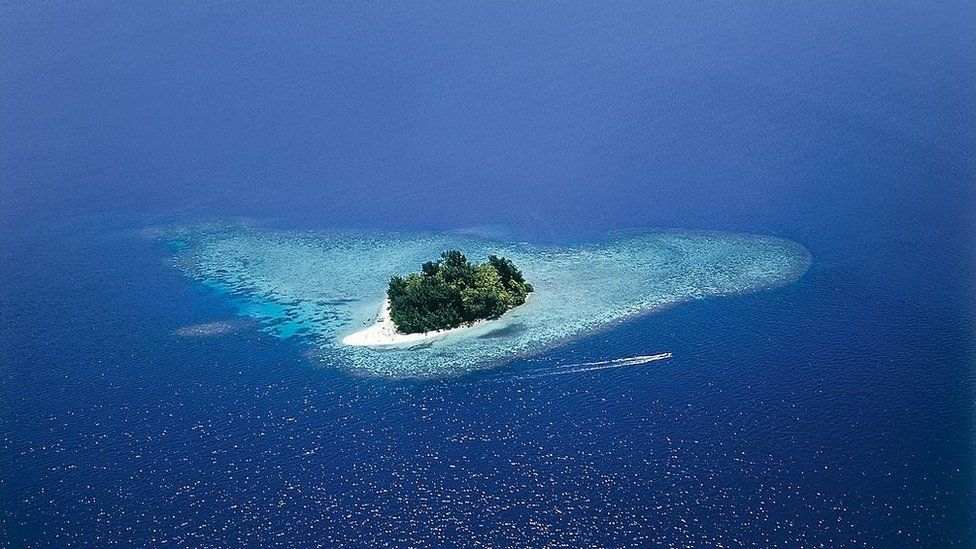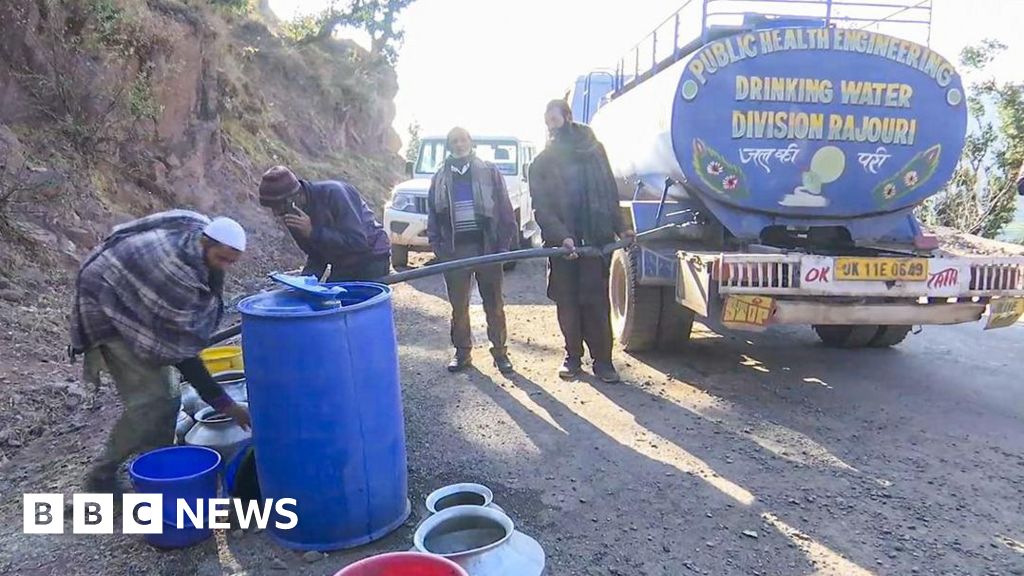ARTICLE AD BOX
By Boer Deng
BBC News, Washington
 Image source, Getty Images
Image source, Getty Images
US neglect of the Pacific has given China an opening for influence
They are hundreds of miles from the nearest continent - an archipelago of over 900 islands home to a population smaller than that of the single US city of Seattle - but a tiny nation in the South Pacific has become a new front in the battle for supremacy with China.
It was a starless night when a ship commanded by a young American lieutenant collided with a Japanese destroyer in the South Pacific.
The US ship was sunk, but the commander survived, was hailed as a hero, and later became president.
The famed episode of the mission gone awry in 1943 that eventually helped launch the political career of John F Kennedy was perhaps the last time the Solomon Islands, a tiny island nation at the edge of what was once the British empire, figured into the consciousness of the American public.
The Solomons were the site of a major allied offensive against Japan in the Second World War, the Guadalcanal campaign that began in 1942, making clear the importance of the Pacific to the West.
As its 80th anniversary is marked on 7 August, the US is finally, after long neglect, paying attention again.
This time US allies are wary of a different power: the rising influence of China.
But, experts say, they are caught on the back foot.
Image source, Getty Images
Image caption,John F Kennedy's time in the South Pacific made him a military hero and helped launch his political career
Stretching thousands of miles, spanning across hemispheres, the 12 island nations and myriad of territories that make up Oceania are the gateway to Asia from the Pacific.
The vast geographic cover means crucial roles played in everything from shipping routes to fishing rights to environmental protection.
"From a hard, strategic standpoint, they matter [for] the US to project military and economic power from the Western Pacific all the way to South East Asia," according to Alex Gray, an Indo-Pacific security expert at the American Foreign Policy Council.
"The same imperatives have been there since the 19th Century - if you're trying to get to East Asia, you have to go through the Pacific islands".
Three island nations in the North Pacific - Micronesia, Palau and the Marshall Islands - give exclusive military use rights to the US, while the South Pacific Islands, including the Solomons, are a passage to Australia and New Zealand.
Yet Western governments have taken their importance for granted since at least the Cold War, said Mr Gray. The view had been that newly created nations in Central Asia and the great tussles in South East Asia took precedent.
But China has always remained astute, and has been particularly acutely aware of the strategic importance of the region, Mr Gray argued. "If you look at Chinese writing at think tanks, on foreign policy issues…[they] write very eloquently about how different islands fit in to communication channels, and sea lines across the Pacific, and have been across this throughout the 21 Century."
According to China watchers, Beijing has been courting Pacific island nations for at least the last 15 years, giving VIP treatment to heads of states and attempting to sign infrastructure and military agreements.
Image source, Getty Images
Image caption,There are worries that China might attempt to start a military base in the region
A renewed focus on the Pacific only began under the Trump administration, experts say, after China's growing influence could no longer be ignored, resulting in the leaders of three North Pacific nations coming to the White House for the first time in 2019.
Now, a security agreement inked between the Solomon Islands and China in March has raised alarm in the South Pacific, especially as its government and that of the nearby nation of Kiribati have already switched their allegiances from Taipei, the capital of Taiwan, to Beijing.
"We're kind of playing catch-up big time," said Derek Grossman of the Rand Corporation, a think-tank.
The fear, said Mr Grossman, is that China could eventually establish a military base that would challenge the West's ability to access Asia.
"We've essentially neglected it [the Pacific region] and that's been to our detriment."
That view appears to be shared by the Biden administration, as well as in Canberra.
The US last had an embassy in Honiara, the Solomons' capital, in 1993, but its doors were closed and services folded into those at the US outpost in Papua New Guinea, some 870 miles (1,400 km) away.
In the weeks before the security agreement with Beijing had been leaked, Secretary of State Antony Blinken had announced plans to reopen it.
Image source, Getty Images
Image caption,Caroline Kennedy is the US ambassador to Australia and recently made a trip to the region
The security agreement has hastened the sense of urgency, and now, for the anniversary of the Guadalcanal campaign, the State department is dispatching two senior officials - Mr Blinken's deputy Wendy Sherman, and Caroline Kennedy, daughter of the president and the new US ambassador to Australia - in what is being seen as the most high-profile visit to the South Pacific in years.
Upon her arrival in Canberra last month, Ms Kennedy told reporters that the US "needs to do more" in the Pacific, acknowledging that "we haven't been there in a while" but China "certainly has a big presence".
As part of the trip, the two women are also making stops in Samoa and Tonga.
After her arrival in Tonga, Ms Sherman stressed the fact the US wanted "to partner with" the region, adding - in what could be perceived as a dig at rivals in the region - the US wanted to "make sure you get to choose your own future and that neither we, nor anybody else, decides it for you".
She also revealed the region's leaders would be invited to Washington for a meeting and dinner later in August, adding it would "be a historic opportunity with the United States and Pacific islands countries to hear and listen, the Pacific way".
Though it is unclear what, if any fruits, will be borne of the visit, but there is hope that the West may yet win back the favour of a vast region it can ill-afford to take for granted.
"Since 1945, we've assumed that we can move unhindered from Hawaii to East Asia. If China is able to militarise this region, that completely changes the calculus for American security and for Western allies," said Mr Gray.
With their appearance in the Solomon Islands, marking the remembrance of solidarity with the West, "I think the phrase 'better late than never' really applies," he added.

 2 years ago
60
2 years ago
60









 English (US) ·
English (US) ·